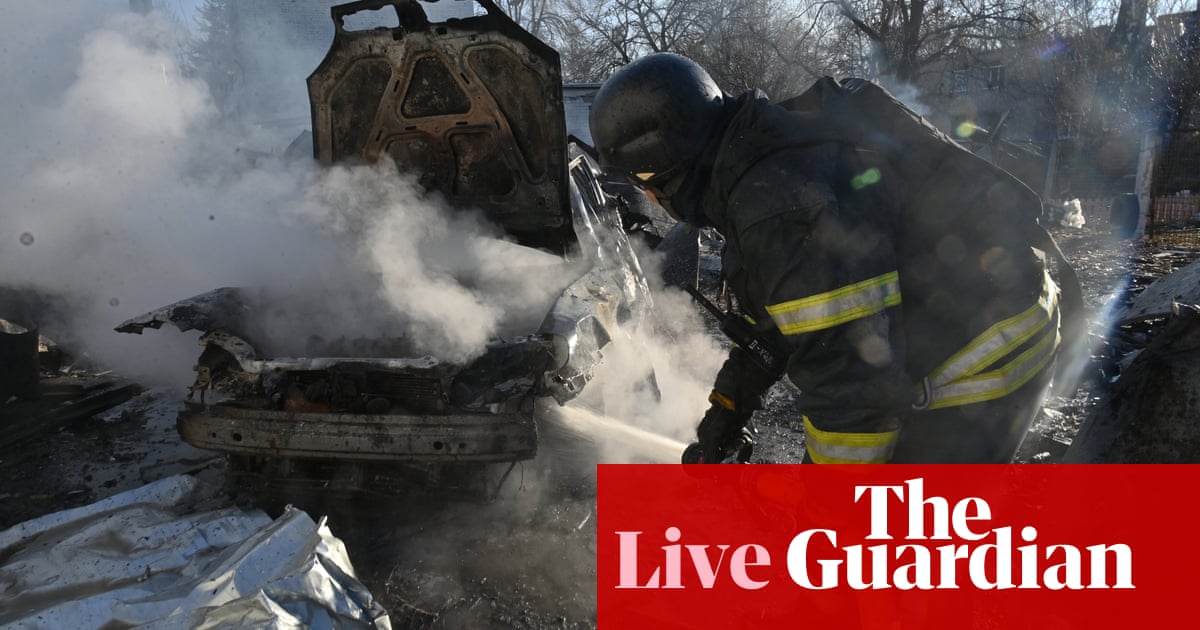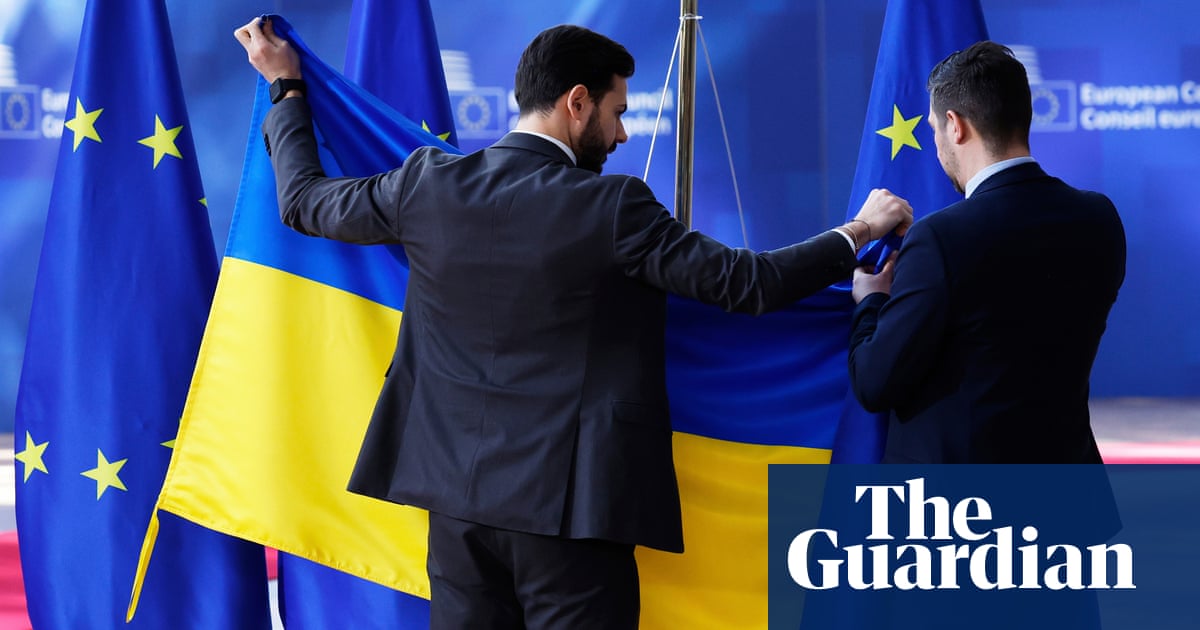Europe’s New Dividing Line Is Security

Fifteen years ago, when Europe went through a financial crisis, an economic depression, and a euro crisis, most political fights between European countries were about money. As a result, a deep divide emerged between northern and southern countries on debt and government deficits. At some point, the disputes got so fierce that some northerners proposed breaking the euro in two: a “neuro” for the north and a “zeuro” for the south.
In 2015, when hundreds of thousands of Syrian refugees came to Europe, the money issue subsided, and European countries began having disputes about asylum and migration instead. This time, the divide many speculated about was not between the north and the south but between Europe’s east and west.
And what is today’s divide? Well, as the French say: comme ça change. It is not debt or even migration—it is security.
With a war on its doorstep and hybrid attacks on its public infrastructure, businesses, and media on the increase, Europe’s priorities are once again shifting fast. Many Europeans feel that the peace and prosperity they have built and enjoyed since the early 1950s are at stake.
European citizens often complain about what Europe is doing wrong. But with Europe’s public space flooded with fake news from Russian troll factories, its external borders violated by Russian and Belarusian armed men pushing refugees in, and its hospitals, businesses, and municipalities hacked for ransom, many feel vulnerable and have realized they have a lot to lose.
As a result, there seems to be a kind of reappraisal going on about European integration. The Eurobarometer, the opinion poll that asks citizens in all member states every six months whether membership is a good thing for their country, confirms this. In the mid-2000s, 50 percent of Europeans said yes. Today, it is 72 percent. This is probably why during the European elections in June, contrary to the predictions and expectations of many pollsters, the Euroskeptic far right hardly made any gains. Instead, the big winner of the elections was the European People’s Party (EPP), the family of European center-right parties.
Across Scandinavia and the east—in other words, in European Union member states bordering Russia and/or Ukraine—most Euroskeptic far-right parties even received a beating. So close to the fire, voters appear much less in the mood for political experiments than in countries further west such as France or Germany, where extremist parties came in first and second, respectively.
Moreover, in recent months, several EU member states have been rocked by scandals brought to light by the Czech intelligence service, showing how the Kremlin pays far-right politicians across Europe to undermine the social and political fabric in their countries by, among other things, spreading Russian propaganda. That some of them had been in Russia’s pocket was no secret. The warm ties between Moscow and France’s National Rally and the Freedom Party of Austria have been meticulously documented, for example in Anton Shekhovtsov’s Russia and the Western Far Right: Tango Noir, published in 2017.
In different times, when European governments bickered over budget deficits or refugee quotas, citizens could perhaps afford to be less upset about these ties. But now, with a war raging at Europe’s external border and Russian President Vladimir Putin regularly threatening EU countries with nuclear war, Russian money flows to far-right politicians elicit more controversy. Are Dutch far-right conspiracy theorist Thierry Baudet, Belgian far-right politician Filip Dewinter, and others actually undermining security in Europe? Who are their backers, and what are their real agendas? Ten years ago, far-right politicians got away with vague answers and conspiratorial rants about the “deep state” and “woke” media. No longer.
The new security discourse is drawing a fresh dividing line through European politics. Increasingly, it separates those who are supportive of a strong EU, trans-Atlantic relations, and Ukraine from those who are not.
In France, this divide shaped both the European elections and the parliamentary elections that President Emmanuel Macron triggered afterward in an attempt to overturn the far-right victory. But the winner of the parliamentary elections was a left-wing alliance including La France Insoumise, which is almost as Euroskeptic, anti-American, anti-NATO, and unsupportive of Ukraine as the far right. Now, the political center, severely damaged, seeks to form a government with moderate elements of the left-wing and right-wing blocs. Whether it will manage remains to be seen.
Even in Austria, which is notoriously Russia-friendly, finally some limit seems to have been reached. Vienna is still considered a hub for Russian spies taking advantage of diplomatic immunity and has Europe’s laxest anti-spy legislation. Nevertheless, in late March, former Austrian intelligence officer Egisto Ott, who sent sensitive information to Moscow about journalist Christo Grozev and others on Russia’s hit list, was finally arrested. Ott’s arrest warrant was 86 pages long.
In another sign, Hungary’s recent decision to loosen restrictions on visitors from Russia elicited an exceptionally strong rebuke from EPP leader Manfred Weber. For years, the EPP had turned a blind eye to Hungary’s violations of EU values and laws because the country’s ruling party, Fidesz, was a member. In 2021, after many conflicts, Fidesz left the group, but Weber still avoided publicly escalating rows with Hungary, such as over its blockage of Sweden’s NATO membership or its refusal to allow EU weapons deliveries to Ukraine. This time, however, the reaction was immediate and sharp. Weber condemned Hungary’s lax visitation restrictions, saying they raised “serious national security concerns” and called for Europe’s national leaders to “adopt the most stringent measures” to protect Europe’s border-free Schengen Area, which Hungary could soon be flooding with undesirable Russian individuals.
These examples show how within political families, within EU member states, and between European countries security is becoming the major concern. In European politics, cards are reshuffled as a result. The center right, as the winner of June’s European elections, is taking full advantage of it.
Already last year, Klaus Welle, a former secretary-general of the European Parliament who was an influential political strategist within the EPP, wrote an essay for Le Grand Continent arguing that in an increasingly dangerous world, Europe’s center right must categorically exclude cooperation with all parties that are pro-Russian, anti-American, anti-NATO, and anti-EU. “Putinism,” Welle wrote, “is no longer a workable option in a civilized Europe.”
By contrast, in his view, cooperation was possible with those far-right parties that agree Europe must be protected from Russia’s 19th-century imperial ambitions, support NATO and good trans-Atlantic relations, and recognize the rule of law in Europe, which he called a “necessary complement to the nation-state.” In the article, the parties of the prime ministers of Italy and the Czech Republic were mentioned as examples. Both have, though stemming from the far right, moved to the center of the European political spectrum on these issues—at least, until this summer.
During the European Parliament’s first working weeks in July, Welle’s mechanism was already in full swing. The Euroskeptic, Russophile far right, including members from Fidesz and the National Rally, did not get influential positions in the political committees, barred by a large block of centrist political families including the now all-powerful center right. But the EPP refused to join a similar cordon sanitaire to block more so-called moderate far-right parties (such as Giorgia Meloni’s Brothers of Italy) from acquiring those positions.
The new security divide in European politics, then, appears to be a great occasion for the center right to broaden its dominance. As Europe’s security challenge has only just started, with Russia stepping up its hybrid attacks, that dominance will probably last a long while.
Related
Zelenskyy reiterates call for air truce after huge Russian attack…
We need Russia to stop attacks, Zelenskyy says, backing calls for truce in air, at seaUkrainian president Volodymyr Zelenskyy has responded to overnight attacks
Europe scrambles to rearm as Trump threatens security guarantees and…
CNN — European leaders have vowed to rearm the continent at historic emergency talks h
Russia launches ‘massive’ attack on Ukraine after Europe rushes to…
Ukraine's energy and gas infrastructure came "under massive missile and drone shelling" by Russia on Friday, a Ukrainian minister said."The energy and gas infra
American severance may be averted, but Europe’s leaders must fear…
With a mixture of regret, laced with incredulity, European leaders gathered in Brussels to marshal their forces for a power struggle not with Russia, but with t












